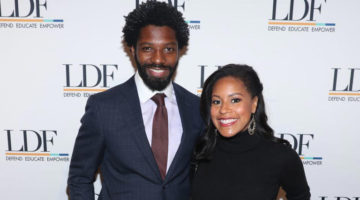CORAL GABLES (AP) — Of the 65 coaches leading programs affiliated with the Bowl Championship Series, the University of Miami’s Randy Shannon is about to stand alone.
He will soon be the only black man in the group.
After Sylvester Croom resigned Saturday, Nov. 29 from Mississippi State, along with the recent firings of Kansas State’s Ron Prince and Washington’s Tyrone Willingham – who’ll coach his final game with the Huskies on Saturday, Dec. 6 – Shannon is one of three black coaches left in major college football, and the only one at a BCS school.
The last time there were only three black coaches at the Division I-A level was 1993, and Shannon, who waited many years before getting his first legitimate chance at becoming a head coach, simply can’t understand the lack of progress in bridging the sideline race gap.
“It’s sad that we keep talking about the same things,” Shannon told The Associated Press on Nov. 30. “Maybe Sylvester was tired. I know a year or two ago he had surgery on his hip or back. But after a while, you say to yourself, how much longer can we keep going just talking about this? We can’t keep talking about the same issues every year.”
And yet, at this time every year, the issue keeps coming back.
Bowl season hasn’t even started, but already, some marquee jobs have come open – and, in some cases, apparently have been filled.
Tennessee was expected to name Lane Kiffin as Phillip Fulmer’s replacement, and Clemson could move to promote interim coach Dabo Sweeney.
One of the few black candidates believed to have legitimate interest from a BCS school that’s changing coaches is Illinois offensive coordinator Mike Locksley, who has been mentioned as a replacement for Greg Robinson at Syracuse. University at Buffalo’s Turner Gill – who, along with Shannon and Houston’s Kevin Sumlin, is one of the three black coaches who have jobs for ’09 – is also thought to be a Syracuse candidate.
The only other prominent black assistant to be mentioned so far is Notre Dame offensive coordinator Michael Haywood, who reportedly was interviewed by Washington to replace Willingham.
Floyd Keith, executive director of the Black Coaches and Administrators, has said many times he’d like to see the number of black college football coaches get to at least 10 – but now the total is headed the other way, even though nearly half of the players at the level formerly known as Division I-A are black.
Shannon, though, knows there’s no easy solution. But he likes one idea.
“If they want to give minority coaches more of a chance, they should let there be three graduate assistants and one of them has to be a minority,” Shannon said. “At least then, you’d be giving a minority coach a chance to develop. If you want to address the issue, allow a third spot to be a minority position and if you can’t fill it, then you can’t fill it. But give them a chance.”
Gill told The Buffalo News for a story published Nov. 30 that he always heard the same thing when he interviewed for various jobs before moving to western New York.
“Not the right fit,” Gill told the newspaper. “The words ‘not the right fit’ can be looked at in several ways. Not to say that you weren’t qualified but maybe they want a guy who’s going to be there for four (or) five years or has a different offensive or defensive philosophy. There’s so many different dynamics to the word ‘fit.’ ”
In South Florida, diversity seems to fit.
Not only does Miami have a black football coach, it has a woman – Donna Shalala, who served as secretary of health and human services under former President Bill Clinton – as university president. And, a black men’s basketball coach in Frank Haith.
A few miles away at Florida International, Cuban-Americans serve as university president (Mitch Maidique), athletic director (Pete Garcia) and football coach (Mario Cristobal).
“It’s a diverse community,” Shannon said. “You can see every ethnic group in Miami. Coach Cristobal, he does a good job, and white, black, Hispanic, we’ve been this way for years in Miami. It’s a melting pot more than anything.”
It’s hardly that way everywhere. According to a recent BCA hiring report card, only 12 of 199 vacancies between 1996 and 2006 went to blacks.
But the need to label – and track the number of – minority coaches is still puzzling to Shannon.
“I think we all should be treated as coaches equally,” Shannon said. “But it’s just how society is. The minority deal is always going to be there.”
Photo: University of Miami’s Randy Shannon









No Comment